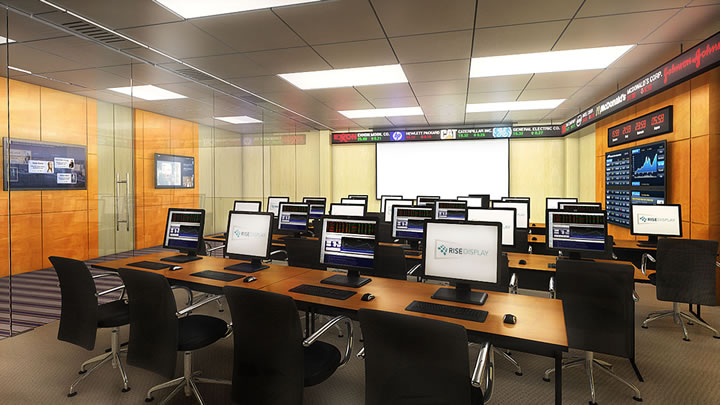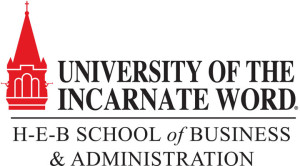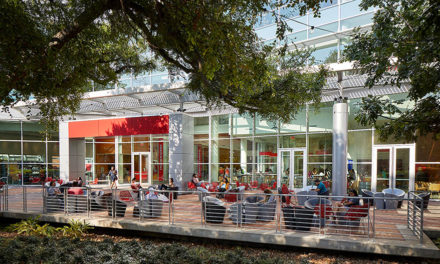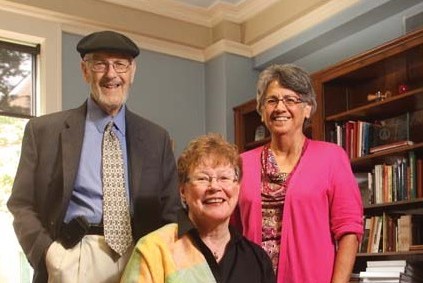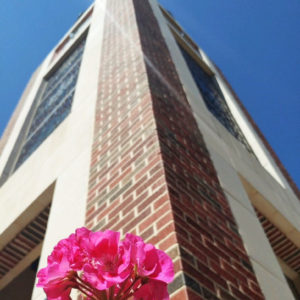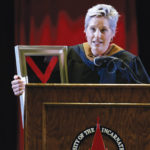By Ashley Festa
UIW will soon install a barber pole at the Gorman Business and Education Center. Metaphorically speaking, of course.
“When you see a barber pole, you know where you are,” said Dr. Forrest Aven, dean of the H-E-B School of Business and Administration (HEBSBA), who started the position in July. “When you see a stock ticker, you know exactly where you are.”
The new ticker will establish an iconic landmark for the finance lab and trading room, which is in the final planning stages for the HEBSBA.
The stock ticker is only one of the exciting features of the new lab, which has been a hot topic among business faculty for a few years and soon will become reality for more than 600 undergraduates and more than 200 graduate business students. The lab will provide students with real world, hands-on training, making them more competitive in the job market after graduation.
By spring, Aven expects construction to be underway, with a functional lab complete by Fall 2014. Because the Gorman Building will need a technology update, Aven anticipates a $100,000 price tag for the new lab. Despite the initial sticker shock, Aven believes donors will be eager to help fund the project once they learn the many ways students will benefit from the lab.
For example, finance students will be able to add a new accomplishment to their résumé: investment fund management.
Already, business students have the opportunity to create a portfolio and trade stocks. “But they’re only creating it on paper,” said Dr. Alicia Rodriguez de Rubio, assistant professor of finance and director of the financial planning program.
Because the experience is simulated – “it’s basically Monopoly money” – students are less invested in the outcome of their decisions, Rodriguez de Rubio said.
Business faculty hope to change that perspective with the creation of a student-managed investment fund, which will use real dollars and generate real profits and losses. Aven hopes to procure $20,000 for the student fund in an effort to spark finance majors’ enthusiasm and motivate them to do their best work. To show their dedication to the project, faculty will be able to contribute to the fund through the Employee Campaign.
With the added pressure of using real money, students hope to keep their investments in the black. Profits likely will be reinvested in the beginning, though later as the fund grows, its possible earnings could be used to subsidize other HEBSBA programs.
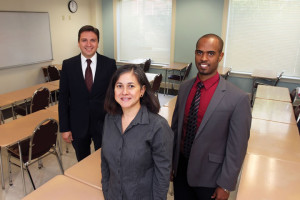
(Pictured L-R) Dr. Jose Moreno, Dr. Alicia Rodriguez de Rubio, and Dr. Philip Gibson stand in one of the Gorman Building classrooms that may be converted into a finance lab. Moreno, Rodriguez de Rubio, and Gibson will play a significant role in the lab’s design and development.
With the students’ increased responsibility, they will also have increased capability. “We’ll have more robust databases so students can do their research, instead of using Yahoo! and Google to find information,” Rodriguez de Rubio said.
The new software, which Aven says will allow students access to in-depth company insights not available to the general public, will cost about $30,000 a year and be comparable to what’s used by financial institutions and businesses. Having experience with applicable software and technology will give students a leg up in the job market, especially because they can hit the ground running as a new hire, minimizing time and training expenses for their employer.
Though the software will provide up-to-date information, students will not make trades on the fly. “Students manage the account, and they’ll research and make recommendations to a group or team leader or the professor,” said Dr. Philip Gibson, assistant professor of finance. “Based on that information, they’ll make trades. It’s a controlled environment.”
It’s also an environment for students to discover and master other skills needed for a successful career in finance. For example, students must hone their presentation skills to state the case for their recommendations. Not every trade proposal will be accepted, so students must present solid research to support their conclusions.
Not only will the finance lab and training room raise the students’ game, but also that of the HEBSBA. As UIW graduates become more competitive in the job market, Incarnate Word becomes a more desirable university for prospective students.
The finance lab is the perfect complement to the UIW business school’s already growing finance program, said Dr. Jose Moreno, MBA director and associate professor of finance and banking. This year, faculty developed the finance concentration for the MBA program, and students began taking courses this fall. In 2010, the finance faculty developed the BBA in finance with emphasis in financial planning.
“The finance lab fits perfectly in this effort to improve the learning process of our students and the quality of our graduates,” Moreno said, “because they will have access to a real work experience in this area.”
